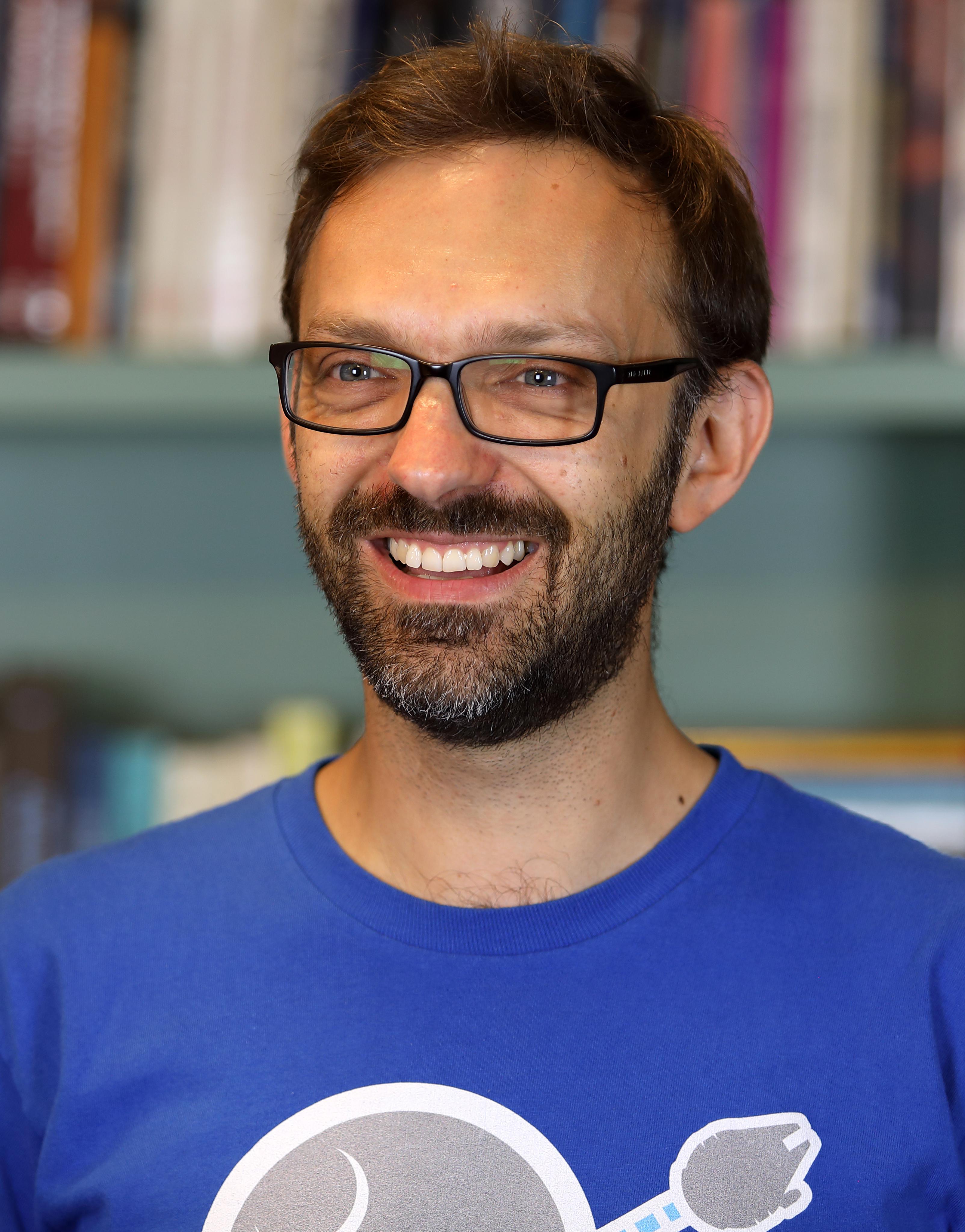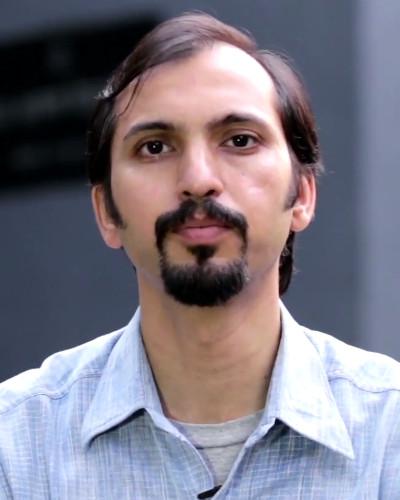Online Formats For Astronomy Education
Parallel Session
3rd Shaw-IAU Workshop on Astronomy for Education
Session timeblocks
Wednesday Oct. 13, 2021
UTC: 6:30 p.m. -
8 p.m.
Friday Oct. 15, 2021
UTC: 8:30 a.m. -
10 a.m.
Schedule
-
Online Resources for Teaching Astronomy
Wednesday Oct. 13, 2021
UTC: 6:30 p.m. - 6:40 p.m.Friday Oct. 15, 2021
UTC: 8:30 a.m. - 8:40 a.m.The growth of the Internet has facilitated the easy availability of resources for teaching astronomy, particularly at the introductory level. This overview concentrates on resources that are free or open access. Basic materials like textbooks, lab activities, and large numbers of astronomical images can be found, along with higher-level items such as concept inventories and interactive instructional tools. Instructors can find teaching guides and tips for interdisciplinary approaches to astronomy. There is also a small but growing research literature on astronomy instruction to be found online. Taken together these resources are of great value to both novice and seasoned instructors.

Chris Impey (University of Arizona)
For more information about this talk click here
-
Platforms to create your own online Astronomy courses
Wednesday Oct. 13, 2021
UTC: 6:40 p.m. - 6:55 p.m.Friday Oct. 15, 2021
UTC: 8:40 a.m. - 8:55 a.m.Several online platforms are available for teachers to use, create and host their own Open Educational Resource (OER) courses. But how does one choose which platform to use? To answer this we review some of the common free and open source platforms that can be used to develop and deliver courses using a rubric developed for this purpose. We discuss the features of the platforms for pedagogical features with a special focus on the requirements of astronomy education. Similarly, we also discuss technical and infrastructural requirements of the platforms. We will also look at features of the platforms which offer free hosting services for online OER courses. Finally, some aspects of open licensing and its implications specifically for the educational context will also be elaborated.

Amit Dhakulkar (North-West University, Mahikeng, South Africa)
Coauthors: Samir Dhurde, Atharva Pathak (IUCAA, Pune, India)
For more information about this talk click here
-
Create better interactive apps
Wednesday Oct. 13, 2021
UTC: 6:55 p.m. - 7:10 p.m.Friday Oct. 15, 2021
UTC: 8:55 a.m. - 9:10 a.m.Whether you are creating website content, an interactive website, or a mobile app there are some simple steps you can follow which will increase its effectiveness. During this talk I will highlight the 4 steps I use whenever I start a new project, and give examples of how I implemented these steps in successful interactive websites.

Edward Gomez (Las Cumbres Observatory)
For more information about this talk click here
-
Discussion Panel: Online Formats for Astronomy Education
Wednesday Oct. 13, 2021UTC: 7:10 p.m. - 8 p.m.
Friday Oct. 15, 2021
UTC: 9:10 a.m. - 10 a.m.Chair:

Samir Dhurde
Panel: Amit Dhakulkar
(North-West University, Mahikeng, South Africa), Edward Gomez
(Las Cumbres Observatory), Chris Impey
(University of Arizona)
Posters
-
A Free On-line, Open-source, Introductory Astronomy Textbook
Andrew Fraknoi (Fromm Institute, U. of San Francisco)
The non-profit OpenStax project at Rice U. publishes free, on-line, open-source, textbooks in every introductory field in college/university. The astronomy textbook in their series, by senior authors Andrew Fraknoi, David Morrison, and Sidney Wolff, now has over 1,100 faculty adopters, and has been used by half a million students worldwide. So far it has saved North American students more than 40 million dollars in astronomy textbook costs. The book’s development was aided by almost 70 astronomers, who helped with making sure the science was accurate and pedagogy effective. The book is easily updated and has links to a wide variety of web pages and apps. The book’s Open Education Resources Hub has over 35 free ancillary materials. See: http://openstax.org/details/astronomy
-
Astronomical Midlands: Engaging Rural and Online Communities in Ireland with Radio Astronomy
Áine Flood (Trinity College Dublin)
We will discuss tried and tested methods for communicating astronomy concepts in an online format. We have used and will examine the pros and cons of various ways to interact with and engage participants and audiences through live video calls. This includes stepping back from the screen for hands-on, tactile demonstrations and activities specifically developed or modified to work in a remote or at-home setting, keeping interest and attention with younger audiences by changing formats and allowing for multiple forms of interaction to suit various learner types, ages and ability levels.
-
Astronomy and Remote Learning: A Stellar Combination
Christine Hirst Bernhardt (University of California, Santa Barbara; Endeavor STEM Teaching Project)
Every child looks up at the moon in wonder and curiosity, yet for years astronomy education has had no place at the roundtable of K-12 standards. Fortunately for space enthusiasts, the advent of NGSS has changed that trajectory. Earth and space science have been elevated to National importance, and comprise nearly 25% of all science content in new standards. Despite this drastic shift, few teachers have the necessary background or resources to integrate these new topics. Further, many teachers are currently adapting their entire practice, including new topics, into remote environments. This setting is fortuitous for astronomy education; many resources can be easily integrated into remote settings, and even allow for greater investigation than in a face-to-face setting. Astronomy education has the capacity to empower students to investigate and design solutions to real world problems, while the space environment presents the evidence for global patterns of change. This session will spotlight several remote astronomy investigations which are embedded into NGSS courses, while providing curricular justification. Spotlight lessons include: Satellites and Social Justice, Satellite Dynamics, Starlight, Solar Observations, Investigating Lunar Craters, and Citizen Science Aboard ISS. Participants will gain access to over a semesters’ worth of take and go remote astronomy lessons for grades 7-12, in any NGSS course. Lessons can be taken as a sequence or a snapshot, and are ready to embed into LMS. Each lesson focuses on the value of studying space, and the implications for society. Lessons address equity in STEM, and are scaffolded to multiple modalities of learning, while utilizing real-time data (solar observations). Each lesson is free, and requires only internet access. Teaching remotely may present new challenges, however teaching space content should not be one of them. This workshop will provide resources for easy integration of topics, to maximize student engagement.
-
Teaching Online K12 Astronomy In The US
Denise Wright (NASA Solar System Ambassadors, Grand Strand Astronomers)
Next Generation Science Standards aim to brings Earth and space science to K-12 standards sine now this comprises nearly 25% of all science content in US education system. This poster will spotlight several remote astronomy investigations which are embedded into NGSS courses, while providing curricular justification. Spotlight lessons include: Satellites and Social Justice, Satellite Dynamics, Starlight, Solar Observations, Investigating Lunar Craters, and Citizen Science Aboard ISS. Participants will gain access to over a semesters’ worth of take and go remote astronomy lessons for grades 7-12, in any NGSS course. Lessons can be taken as a sequence or a snapshot, and are ready to embed into LMS.




